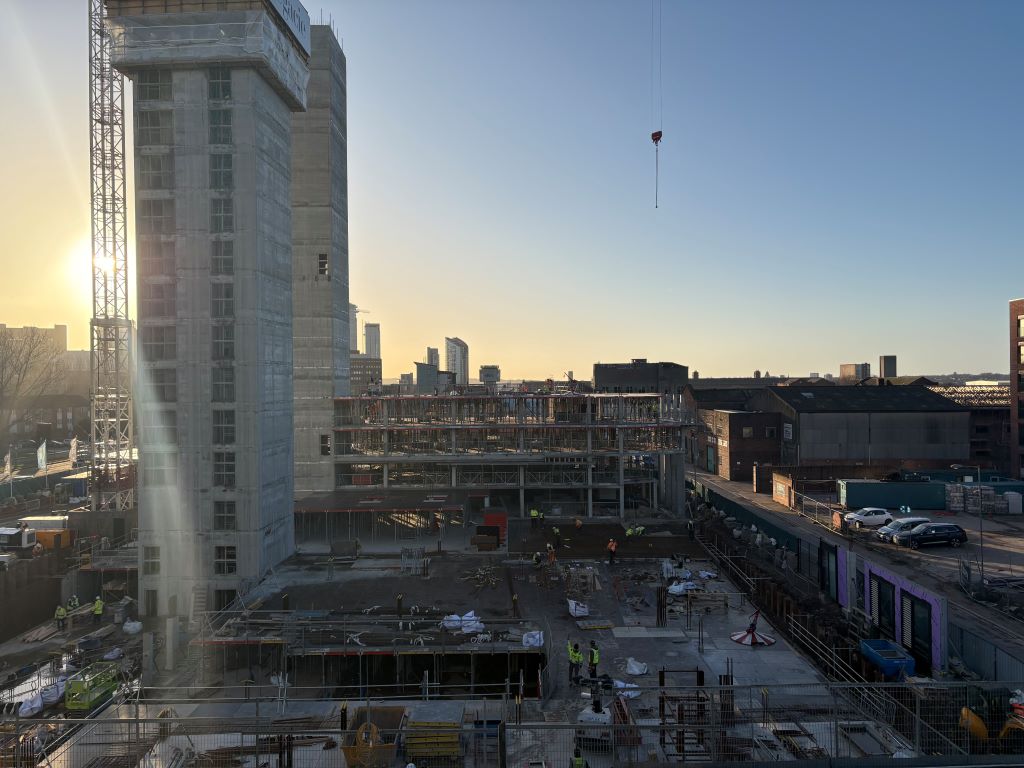Labour must back cities over towns in pursuit of growth
Improving the economic health of the UK’s large urban centres is the key to moving the national dial on growth and should take precedence over plans to revive towns, according to Andrew Carter, chief executive of think tank Centre for Cities.
Speaking to Place North ahead of the Labour Party conference, Carter said the government should lean more heavily on its underperforming cities over the course of the parliament.
The UK’s large cities lag behind their European counterparts in terms of their contribution to the national growth story. Carter is hoping to hear that the government is determined to rectify this when they take to the stage in Liverpool by setting out a clear plan for the nation’s cities.
“I’m still waiting to see what their what their regional agenda is,” he said.
“What’s required from central government is to think about the national economy and to see big cities as economic assets in the national growth agenda, and regarding them as being central to growth and activity across the country.”
Productivity in the UK’s cities is low compared to other similarly sized places in Europe.
This point was made by the mayors of Greater Manchester and West Midlands combined authorities recently when unveiling plans for a rail link between the two city regions aimed at boosting both economies.
In Carter’s view, successive governments have failed to provide cities outside the capital with the impetus they need to thrive.
“When we look at the British economy, it’s quite obvious that these big economic hubs, Greater Leeds, Greater Manchester, and Greater Newcastle, aren’t doing as well as their European counterparts. There’s no reason why they can’t,” he said.
In recent years, Whitehall has given Metro Mayors more powers to shape their places, which has been a positive step towards Carter’s vision of a nation powered by thriving regional cities.
However, recent chat around devolution has been less encouraging, he said.
Secretary of state Angela Rayner wrote to local authorities in so-called “devolution desserts” in the early days of the new government inviting them to get on board the devolution train.
Carter believes it would be better for the country’s growth prospects if she had convened a meeting with England’s biggest cities to tell them they were getting even more powers. Deeper devolution for Manchester should come before a deal for Lancashire for example.
“How do we double down and really make more of the progress that has been made in some of the places that already have [devolution]?
“It is a classic Labour tension: everything for everywhere. We move at the pace of the slowest, rather than encouraging those that are most capable, most advanced, to go even further.”
The vast majority of the country’s Metro Mayors are Labour politicians, which means they will have higher expectations of the current government than the last one.
Political allegiances will not protect the government from the wrath of place-first mayors if they are not provided with a clear plan and pathway to supercharging their respective economies, according to Carter
“They are not going to wait forever. If we don’t get delivery and meaningful change and action, the mayors are going to start to agitate in the way that they agitated with the last government.”
Is the government failing to grasp the importance of cities? One early policy move would suggest so.
Labour has reduced housing targets across many of the country’s largest cities including Liverpool, Birmingham, and Manchester while increasing them elsewhere.
Carter described this as a “strange strategic outcome” and said it provides an insight into the government’s take on the role cities can play in the economy.
“If you just trend it out over time, Greater Manchester’s contribution to the national economy goes down as a share rather than increases,” he said.
“I think that is the wrong way to go. We want it to play an outsized role in the national economy in 10 years’ time.”
It is natural for a party that has just won a huge number of seats to want to keep constituents in those areas happy.
However, improving the productivity of somewhere like Mansfield will have a minimal impact on the UK economy compared with investing to drag Manchester’s output up to where it should be, Carter explains.
“All of our big cities underperform so there’s gains to be had. Getting these other smaller places to do better than they currently are is fine, but the big national dial shifts when Manchester does better, or when Leeds does better.
“A 20% improvement in Mansfield at the national level is not very much, whereas 20% improvement in Greater Manchester is a lot,” he said.
This week’s Labour conference in Liverpool is the party’s biggest test since regaining power this summer.
The development community and the nation’s metro mayors will be watching and listening closely for signs that Keir Starmer and co have thought beyond the buzzwords of housing and growth.
Action and decisions are required.
“The big cities story is difficult politically. The Conservatives found it difficult and currently Labour find it difficult,” Carter said.
“What’s good for the economy can be a challenging political sell. What I’m saying is, and it’s easy for me to say this, you need to pick, you need to make some choices.”






